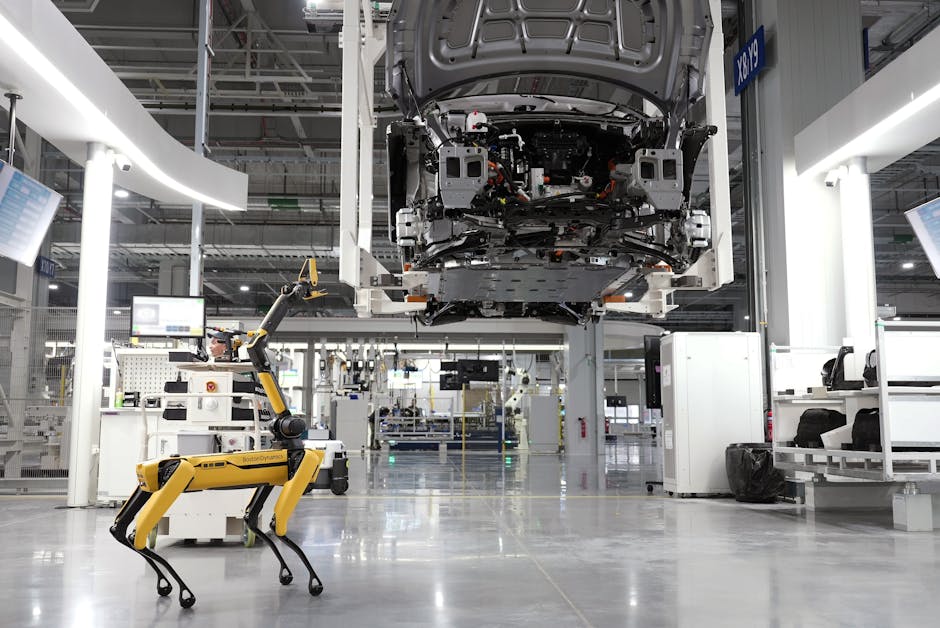Transforming Enterprises: The Evolution of AI Product Metrics in 2025

Transforming Enterprises: The Evolution of AI Product Metrics in 2025
In an age where AI increasingly powers enterprise decisions, understanding the evolution of AI product metrics becomes crucial. The year 2025 marks a significant milestone in this journey. Gone are the days of simplistic benchmarking against static evaluation standards. Today's AI landscape demands metrics that provide deeper insights into business relevance, user trust, and continuous adaptation.
The New Paradigm in AI Metrics
**Traditional vs. Modern Metrics**: While traditional metrics such as accuracy and precision laid the groundwork for early AI evaluations, they no longer suffice in isolation. In 2025, enterprises have shifted to metrics that emphasize real-world applicability and business impact. For instance, recent industry benchmarks have spotlighted activation speed—how quickly a user derives value from an AI product—as a critical indicator of retention and overall success.
**Business-Centric Evaluation Approaches**: This year also witnesses the rise of private, use-case-specific evaluations where companies craft internal eval suites tailored to their proprietary needs, reflecting a profound movement towards personalized AI assessments. This transition ensures compliance with regulatory norms and alignment with specific business goals, fostering AI solutions that are not only innovative but also integral to business strategies.
Frontier Models and Benchmark Achievement
**Multi-Dimensional Benchmarks**: The introduction of benchmarks like GDPval, covering realistic tasks across numerous professions, showcases a more nuanced evaluation of AI capabilities, emphasizing the importance of context and specificity over generalized performance. According to the Stanford AI Index 2025, these multifaceted benchmarks provide a clearer picture of where AI technologies excel and where they require further development.
**Accelerated Benchmarking and Performance Gains**: Rapid advancements in AI capabilities are evident, with dramatic improvements in complex areas like multimodal understanding and strategic problem-solving. Such progress underpins the transformational impact AI is poised to have across various industry sectors.
Real-World Implications and Industry Integration
Large corporations are not just participants but active drivers in the evolving landscape of AI metrics. For example, companies like eBay and Netflix have leveraged sophisticated AI metrics to revolutionize their operations—eBay in enhancing seller engagement through ChatGPT Enterprise, and Netflix in boosting revenues through dynamic, metrics-driven content personalization strategies.
Comparative Insights: Then and Now
**Early Metrics**: Initially, enterprises were heavily reliant on universal benchmarks that often did not account for the intricacies of specific industries or user cases. This broad approach frequently led to mismatched expectations and underutilized AI applications.
**Current Trends**: Current methodologies favor bespoke metrics, focusing on activation speed, customer satisfaction, and real-time feedback loops—a radical yet necessary departure from the past that aligns more closely with distinct business outcomes and continuous improvement in AI deployments.
As we navigate the frontier of AI in enterprise, the real measure of success will no longer be just about leading in technology but leading in relevance and reliability, ensuring AI's role as a pivotal business partner.
Looking Ahead: Strategic Imperatives for Future AI Metrics
The pace at which the AI metrics landscape is evolving underscores a critical need for enterprises to remain agile and informed. Organizations that treat evolving metrics as a cornerstone of their AI strategy will not only stay ahead of the curve but also unlock transformative business values that are both sustainable and competitive.
As the global AI market continues its exponential growth trajectory, anticipated to expand five-fold in the next five years, the importance of robust and contextually relevant metrics will only intensify. This change isn't just pivotal—it's foundational to the next era of business innovation and operational excellence in AI.
In conclusion, as we look towards the future, the integration of sophisticated, business-grounded AI metrics will inevitably define the leaders in this new era of digital transformation. The strategic emphasis on advanced metrics is not merely a trend but a fundamental shift necessary to harness the full potential of AI technologies in a complex, ever-evolving business landscape.
